Education in a changing world
By Ideas Editor August 21, 2020
Colleges and universities are being forced to grapple with how to protect the well-being of their students in new and evolving ways. Perennial issues are mixing with new questions and increased urgencies. How can disadvantaged students overcome social and emotional tolls? What are the hidden consequences of student debt? What, if any, limits should be placed on free speech and protests on college campuses? How can institutions renew and extend their commitment to racial parity? Immerse yourself in readings on education in a time of change:
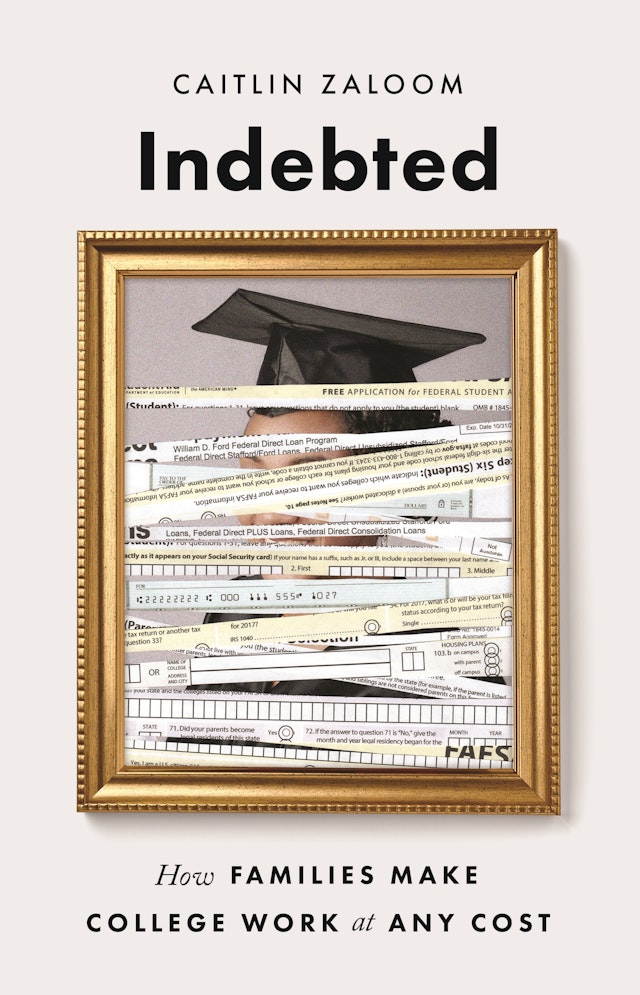 Indebted: How Families Make College Work at Any CostView BookAdd to CartCaitlin Zaloom
Indebted: How Families Make College Work at Any CostView BookAdd to CartCaitlin ZaloomThe struggle to pay for college is one of the defining features of middle-class life in America today. At kitchen tables all across the country, parents agonize over whether to burden their children with loans or to sacrifice their own financial security by taking out a second mortgage or draining their retirement savings. Indebted takes readers into the homes of middle-class families throughout the nation to reveal the hidden consequences of student debt and the ways that financing college has transformed family life.
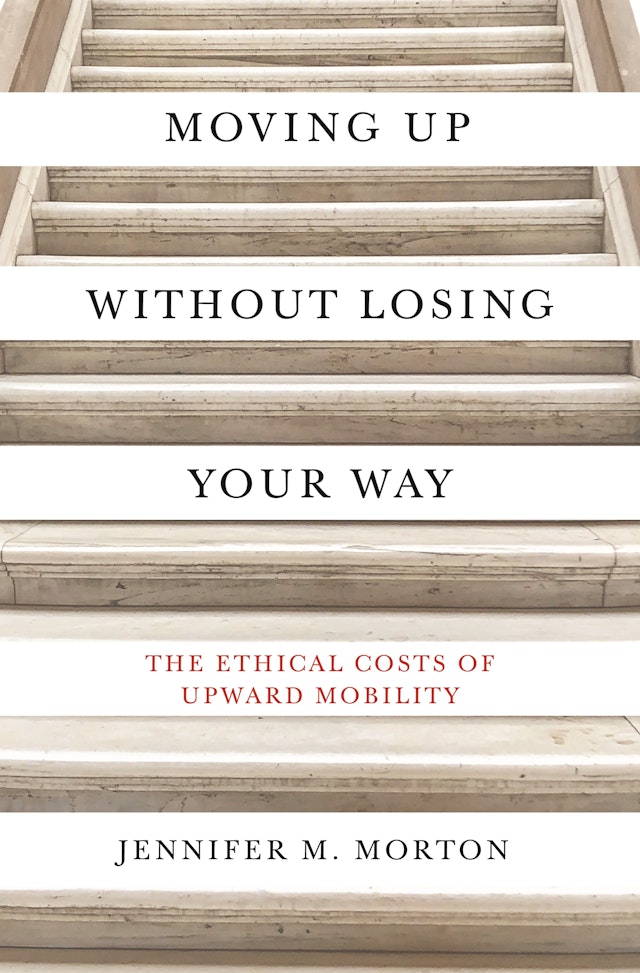 Moving Up without Losing Your Way: The Ethical Costs of Upward MobilityView BookAdd to CartJennifer M. Morton
Moving Up without Losing Your Way: The Ethical Costs of Upward MobilityView BookAdd to CartJennifer M. MortonUpward mobility through the path of higher education has been an article of faith for generations of working-class, low-income, and immigrant college students. While we know this path usually entails financial sacrifices and hard work, very little attention has been paid to the deep personal compromises such students have to make as they enter worlds vastly different from their own. Measuring the true cost of higher education for those from disadvantaged backgrounds, Moving Up without Losing Your Way looks at the ethical dilemmas of upward mobility—the broken ties with family and friends, the severed connections with former communities, and the loss of identity—faced by students as they strive to earn a successful place in society.
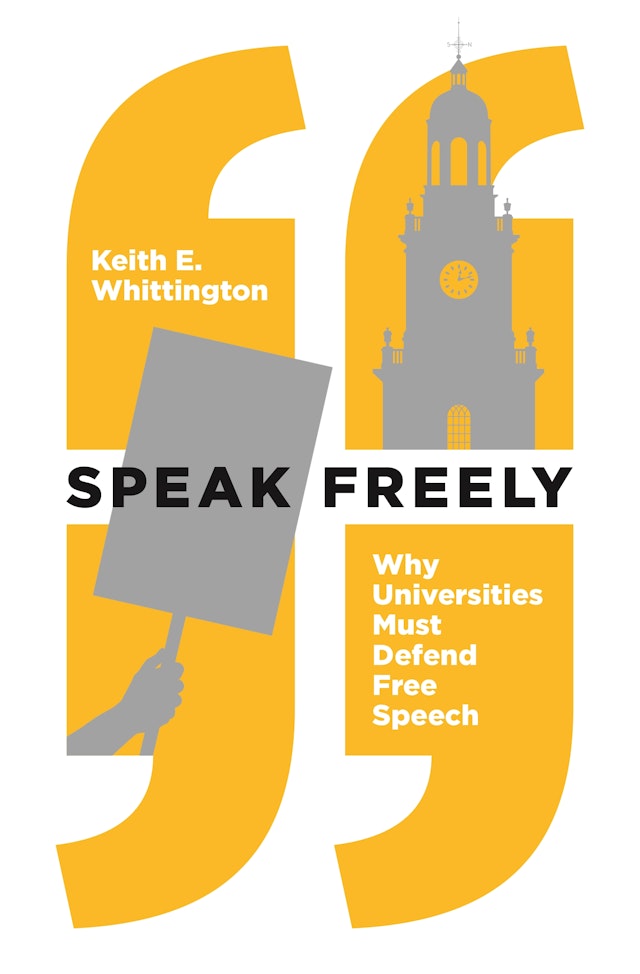 Speak Freely: Why Universities Must Defend Free SpeechView BookAdd to CartKeith E. Whittington
Speak Freely: Why Universities Must Defend Free SpeechView BookAdd to CartKeith E. WhittingtonFree speech is under attack at colleges and universities today, with critics on and off campus challenging the value of open inquiry and freewheeling intellectual debate. Too often speakers are shouted down, professors are threatened, and classes are disrupted. In Speak Freely, Keith Whittington argues that universities must protect and encourage free speech because vigorous free speech is the lifeblood of the university. Without free speech, a university cannot fulfill its most basic, fundamental, and essential purposes, including fostering freedom of thought, ideological diversity, and tolerance.
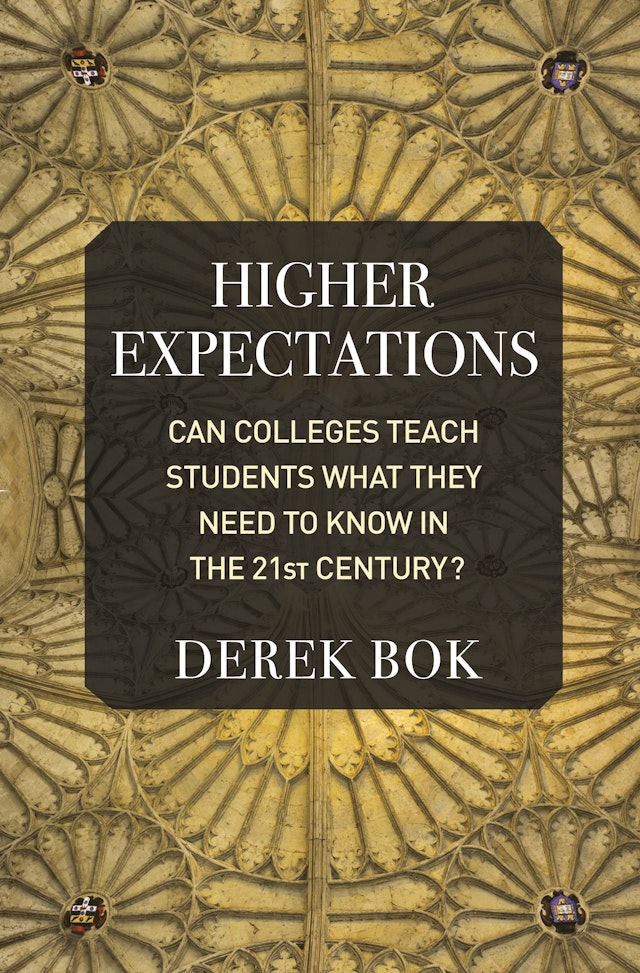 Higher Expectations: Can Colleges Teach Students What They Need to Know in the 21st Century?View BookAdd to CartDerek Bok
Higher Expectations: Can Colleges Teach Students What They Need to Know in the 21st Century?View BookAdd to CartDerek BokIn recent decades, cognitive psychologists have cast new light on human development and given colleges new possibilities for helping students acquire skills and qualities that will enhance their lives and increase their contributions to society. In this landmark book, Derek Bok explores how colleges can reap the benefits of these discoveries and create a more robust undergraduate curriculum for the twenty-first century.
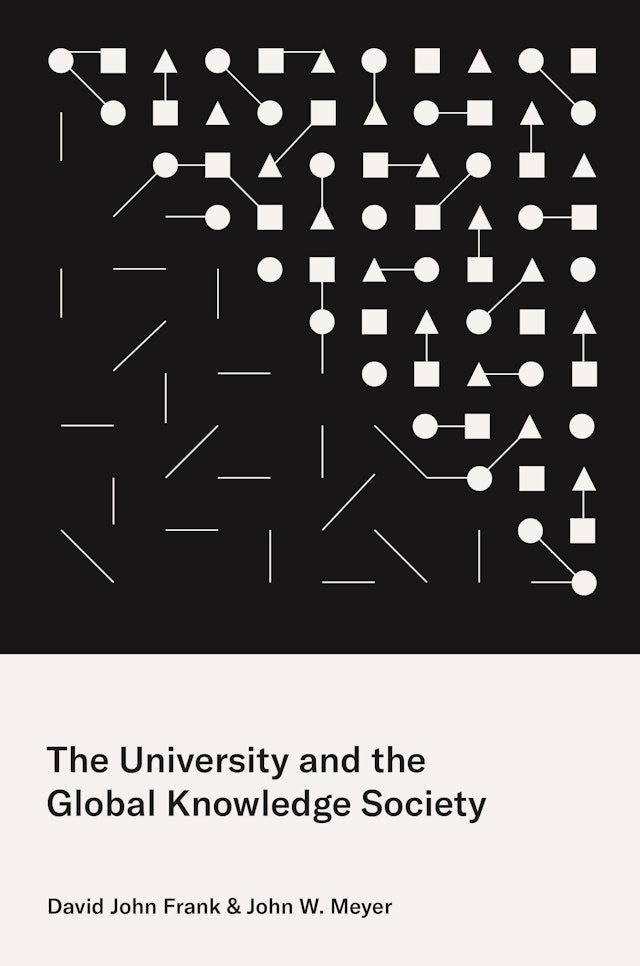 The University and the Global Knowledge SocietyView BookAdd to CartDavid John Frank and John W. Meyer
The University and the Global Knowledge SocietyView BookAdd to CartDavid John Frank and John W. MeyerThe university is experiencing an unprecedented level of success today, as more universities in more countries educate more students in more fields. At the same time, the university has become central to a knowledge society based on the belief that everyone can, through higher education, access universal truths and apply them in the name of progress. This book traces the university’s rise over the past hundred years to become the cultural linchpin of contemporary society, revealing how the so-called ivory tower has become profoundly interlinked with almost every area of human endeavor.
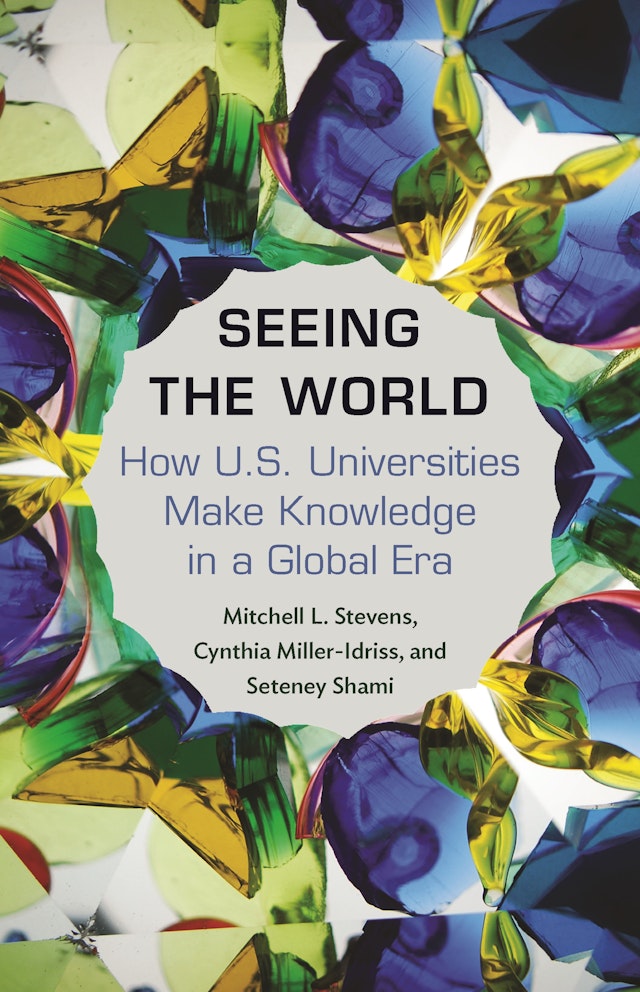 Seeing the World: How US Universities Make Knowledge in a Global EraView BookAdd to CartMitchell L. Stevens, Cynthia Miller-Idriss, and Seteney Shami
Seeing the World: How US Universities Make Knowledge in a Global EraView BookAdd to CartMitchell L. Stevens, Cynthia Miller-Idriss, and Seteney ShamiU.S. research universities have long endeavored to be cosmopolitan places, yet the disciplines of economics, political science, and sociology have remained stubbornly parochial. Despite decades of government and philanthropic investment in international scholarship, the most prestigious academic departments still favor research and expertise on the United States. Why? Seeing the World answers this question by examining university research centers that focus on the Middle East and related regional area studies.
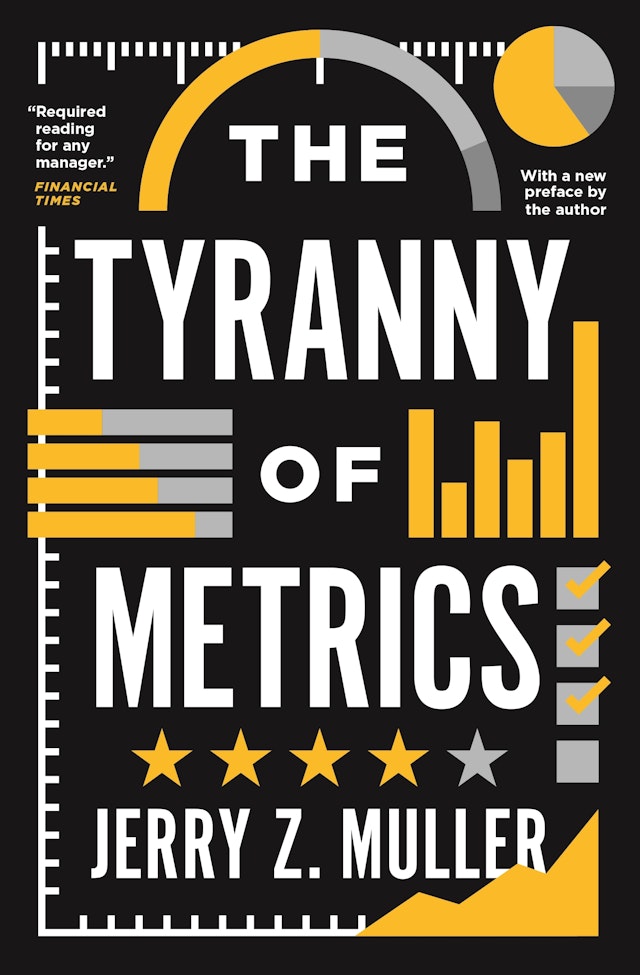 The Tyranny of MetricsView BookAdd to CartJerry Z. Muller
The Tyranny of MetricsView BookAdd to CartJerry Z. MullerToday, organizations of all kinds are ruled by the belief that the path to success is quantifying human performance, publicizing the results, and dividing up the rewards based on the numbers. But in our zeal to instill the evaluation process with scientific rigor, we’ve gone from measuring performance to fixating on measuring itself. The result is a tyranny of metrics that threatens the quality of our lives and most important institutions. In this timely and powerful book, Jerry Muller uncovers the damage our obsession with metrics is causing—and shows how we can begin to fix the problem.
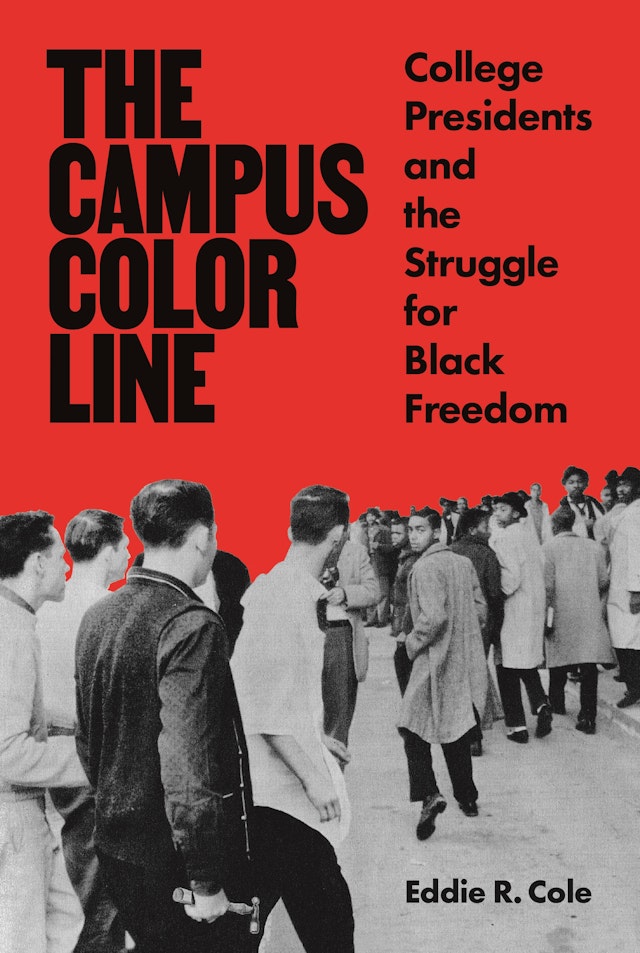 The Campus Color Line: College Presidents and the Struggle for Black FreedomView BookAdd to CartEddie R. Cole
The Campus Color Line: College Presidents and the Struggle for Black FreedomView BookAdd to CartEddie R. ColeAlthough it is commonly known that college students and other activists, as well as politicians, actively participated in the fight for and against civil rights in the middle decades of the twentieth century, historical accounts have not adequately focused on the roles that the nation’s college presidents played in the debates concerning racism. Based on archival research conducted at a range of colleges and universities across the United States, The Campus Color Line sheds light on the important place of college presidents in the struggle for racial parity.
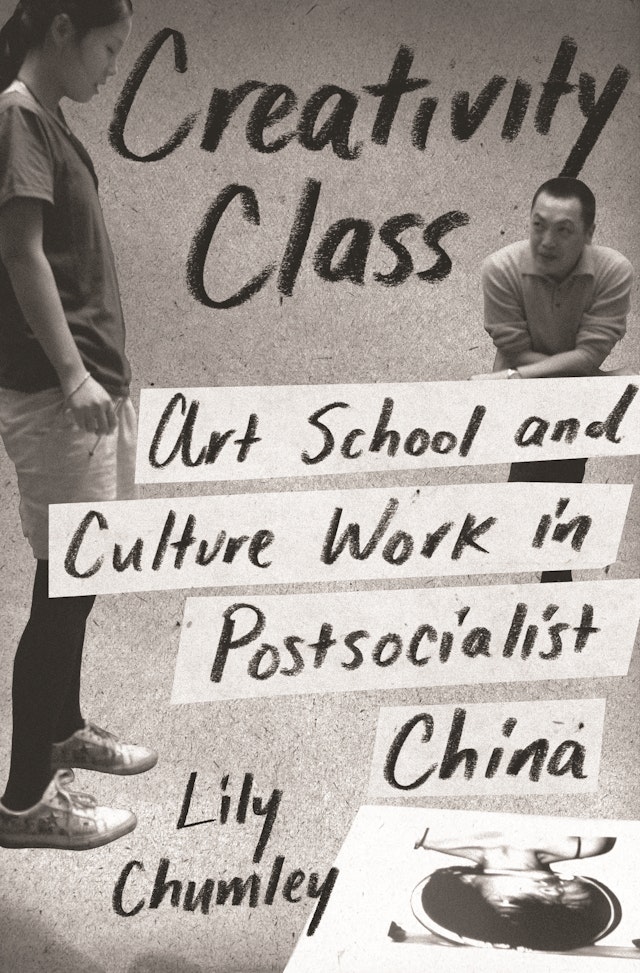 Creativity Class: Art School and Culture Work in Postsocialist ChinaView BookAdd to CartLily Chumley
Creativity Class: Art School and Culture Work in Postsocialist ChinaView BookAdd to CartLily ChumleyCreativity Class is the first book to explore how Chinese art students develop, embody, and promote their own personalities and styles as they move from art school entrance test preparation, to art school, to work in the country’s burgeoning culture industries. Lily Chumley shows the connections between this creative explosion and the Chinese government’s explicit goal of cultivating creative human capital in a new “market socialist” economy where value is produced through innovation.
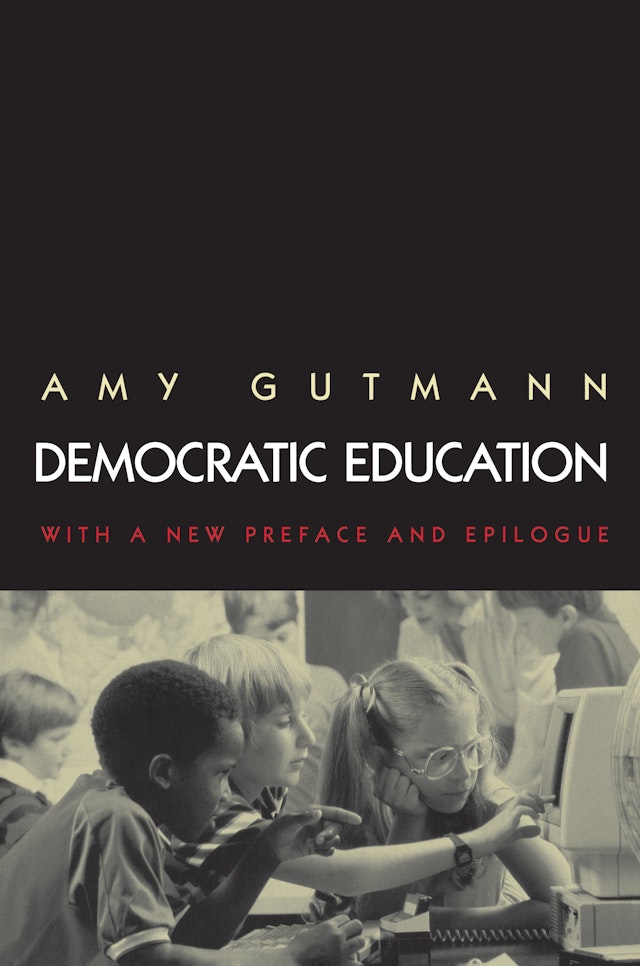 Democratic Education: Revised EditionView BookAdd to CartAmy Gutmann
Democratic Education: Revised EditionView BookAdd to CartAmy GutmannWho should have the authority to shape the education of citizens in a democracy? This is the central question posed by Amy Gutmann in the first book-length study of the democratic theory of education. The author tackles a wide range of issues, from the democratic case against book banning to the role of teachers’ unions in education, as well as the vexed questions of public support for private schools and affirmative action in college admissions.
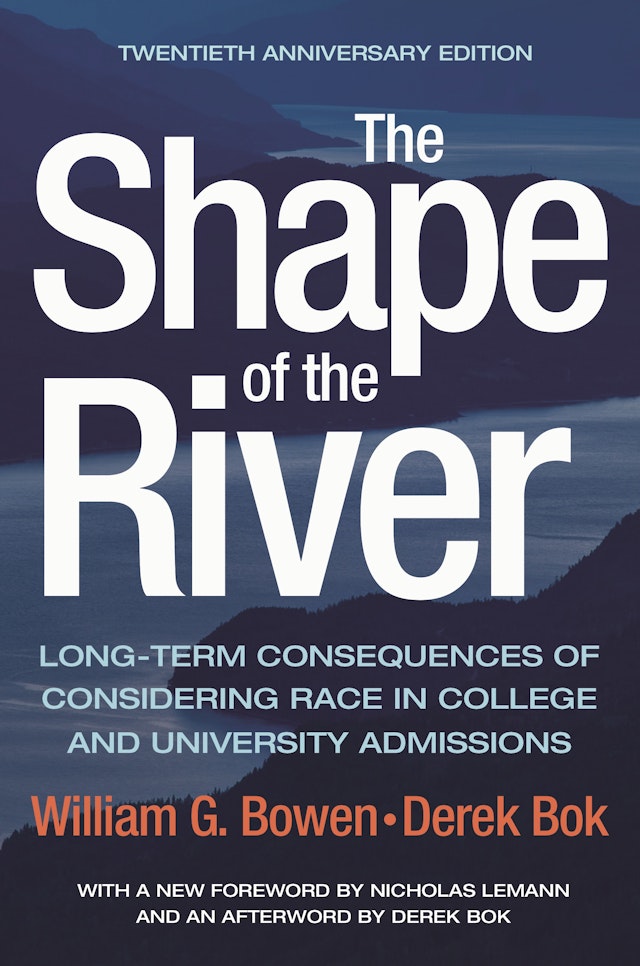 The Shape of the River: Long-Term Consequences of Considering Race in College and University Admissions Twentieth Anniversary EditionView BookAdd to CartWilliam G. Bowen and Derek Bok
The Shape of the River: Long-Term Consequences of Considering Race in College and University Admissions Twentieth Anniversary EditionView BookAdd to CartWilliam G. Bowen and Derek BokThis is the book that has forever changed the debate on affirmative action in America. The Shape of the River is the most far-reaching and comprehensive study of its kind. It brings a wealth of empirical evidence to bear on how race-sensitive admissions policies actually work and clearly defines the effects they have had on over 45,000 students of different races. Its conclusions mark a turning point in national discussions of affirmative action—anything less than factual evidence will no longer suffice in any serious debate of this vital question.
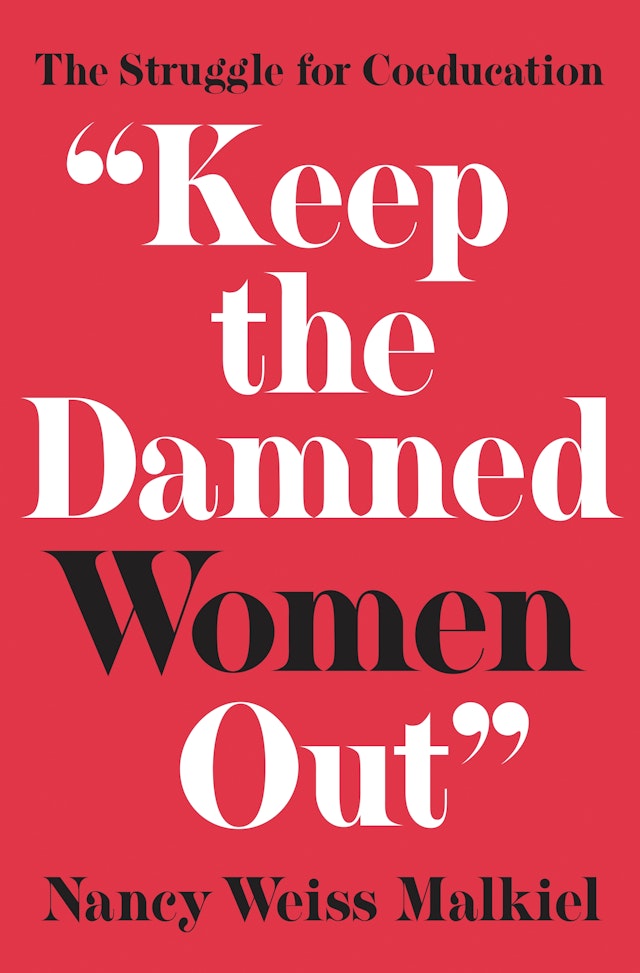 "Keep the Damned Women Out": The Struggle for CoeducationView BookAdd to CartNancy Weiss Malkiel
"Keep the Damned Women Out": The Struggle for CoeducationView BookAdd to CartNancy Weiss MalkielAs the tumultuous decade of the 1960s ended, a number of very traditional, very conservative, highly prestigious colleges and universities in the United States and the United Kingdom decided to go coed, seemingly all at once, in a remarkably brief span of time. Coeducation met with fierce resistance. As one alumnus put it in a letter to his alma mater, “Keep the damned women out.” Focusing on the complexities of institutional decision making, this book tells the story of this momentous era in higher education—revealing how coeducation was achieved not by organized efforts of women activists, but through strategic decisions made by powerful men.
沒有留言:
張貼留言